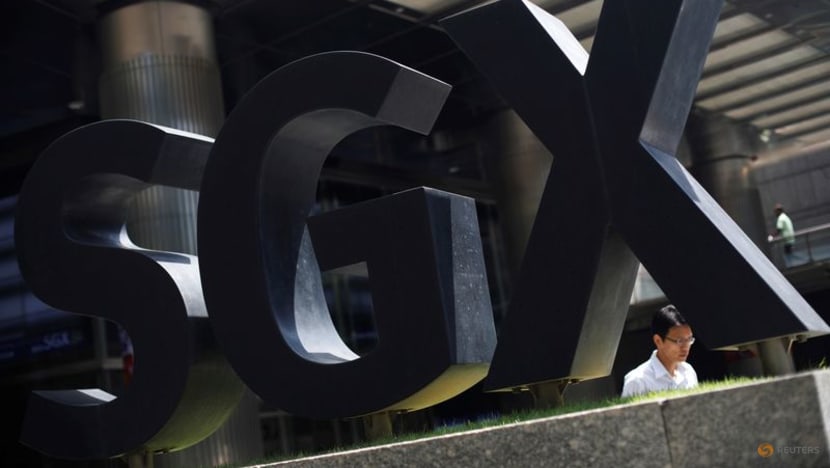New measures may help taxi firms grow fleets but don’t tackle problem of street-hail availability
The key changes include more flexibility for operators to sell off taxis that they do not need and convert used cars into taxis.
Mar 13, 2025
SINGAPORE - A raft of measures intended to stem the continued decline of Singapore’s taxi population, lower the cost of running a taxi business and pave the way for operators to grow their fleets was announced in Parliament on March 5.
The moves followed a review of the point-to-point transport (P2P) sector, which covers taxis and ride-hailing services. The study
began in 2023 and involved the Land Transport Authority (LTA), operators, drivers, commuters and academics, among other parties.
The key changes introduced in the latest round include more flexibility for operators to
sell off taxis that they do not need and convert used cars into taxis.
Without these changes, companies have to contend with holding on to taxis that may not be in demand and being restricted to buying new cars to grow their fleet, adding to their operating costs.
This is the second set of changes from the review.
In the earlier round in March 2024, measures included extending the statutory lifespan of taxis
from eight years to 10 and reducing the frequency of periodic inspections for some taxis to minimise downtime for drivers.
Taken together, do these two rounds of measures go far enough to stem the declining taxi population here?
While they may help to increase the supply of taxis on the market, they do not address the fundamental problem that street-hail rides – the edge that cabs have over private-hire cars – are becoming more elusive.
The Government wants to keep taxis on the road for several reasons.
Senior Minister of State for Transport Amy Khor said in Parliament that taxis play an important role for commuters who are less familiar with using ride-hailing apps and at locations where demand for services is very high, such as airports and ferry terminals.
Within the P2P transport sector, taxis have been ceding ground to ride-hailing services offered by private-hire cars. The population of taxis in Singapore has plummeted from 28,736 in 2014 to 13,117 in 2024, while private-hire cars registered to provide ride-hailing services surged from 1,609 to 59,371 units over the same period.
Still, taxis are a more dependable source of P2P service than private-hire cars. One-shift taxis spend a median of 49 active hours a week providing such trips, compared with 34 hours for private-hire cars, Dr Khor told Parliament.
The main difference between the two is that taxis are allowed to offer street-hail services, while private-hire cars can be booked only using ride-hailing apps. Taxis can also pick up passengers from taxi stands.
In situations like the dispersal of crowds after a major event or at locations like the airport, where there may be a large volume of passengers and an urgency to move them, a steady stream of cabs picking up commuters at a taxi stand is more efficient than relying on ride-hailing apps to match passengers and drivers.
Economist Ivan Png from the National University of Singapore (NUS) said having an adequate supply of taxis is not sufficient to guarantee a meaningful level of street-hail service because drivers can opt to serve customers through booking apps.
“I suspect that drivers prefer bookings because they can choose their jobs. Not being able to choose jobs is exactly what used to characterise a taxi,” added Dr Png, distinguished professor at NUS Business School and the university’s departments of economics and information systems and analytics.
Associate Professor Walter Theseira, a transport economist at the Singapore University of Social Sciences, said customers have become accustomed to booking rides over using a street-hail service.
Prof Theseira said that when demand for street-hail services is low, drivers become less motivated to look for rides. This, in turn, nudges passengers to turn to ride-hailing services, as it gets increasingly difficult to hail a taxi.
Besides cabbies having to work harder to find street-hail customers, they do so for metered fares that are, on average, lower than the fixed fares for ride-hailing trips, said Prof Theseira.
These factors discourage taxi drivers from plying the streets or waiting at taxi stands for customers. This is reflected in official data.
On average, the number of daily street-hailed trips tumbled from 95,000 in December 2022 to 66,000 in December 2024. Conversely, the average daily number of ride-hailing trips – taken on private-hire cars and taxis – grew from 484,000 trips to 528,000 trips in the same period.
Prof Theseira believes that the measures announced so far will not reverse this trend of customers and drivers preferring ride-hailing services over street hailing, as they do not change the basic economics facing the taxi drivers, where fulfilling bookings from apps is more attractive than doing street-hailing jobs.
Dr Png from NUS suggested raising the flag-down fare to incentivise drivers to show up and increase the supply of taxis for street hailing.
While this may be a plausible suggestion to attract drivers, it can also backfire if passengers find street-hailing fares too high and rely even more on app bookings.
Another idea is to have CCTV cameras fitted at taxi stands to monitor the queues, giving information to taxi drivers nearby so they can respond to demand.
Other efforts also appear to be nudging passengers – even seniors – towards digital ride bookings, in a sign that hailing down a cab by the side of the road may slowly become a thing of the past.
A grant was announced on March 5 to help operators develop ideas that can make it easier for commuter groups such as seniors to get a private-hire car ride. It will see the Government subsidise as much as 50 per cent of the cost, capped at $500,000.
LTA said solutions can take the form of improved app features or a standalone senior-friendly ride-booking app, addressing the concerns of users who struggle to navigate the ride-hailing apps.
As part of
an earlier set of changes, ride-hailing platforms have incorporated into their apps options for passengers to more easily request child seats or extra boot space for foldable wheelchairs.
Put together, ride-hailing services are becoming better at serving user groups like seniors, parents travelling with young children and wheelchair users. This erodes the propensity for passengers to opt for a taxi instead of booking a ride with an app.
Another reason given by the Ministry of Transport for its efforts to preserve taxis and street-hail services is the need to serve tourists who are not familiar with getting around the island.
It is not that difficult for tourists to work out what apps they can use to get around in a city – an increasingly common part of travelling.
And, said Prof Theseira, street hailing is not widely available elsewhere around the world – such services tend to be viable only in the downtown core areas of very densely populated cities like London and New York, he said.
He said that in the suburbs and beyond peak periods, the only way to get a ride is to use a booking service, whether using an app or calling an operator to dispatch a vehicle.
“But in Singapore, we traditionally expect to be able to hail a taxi anywhere and any time, and this is not the case here any more,” he added.
In other words, what is happening to the taxi sector here can be seen as the industry evolving in tandem with the situation in other cities.
Taxi operators are not ignorant of this trend. All have leasing operations that supply private-hire cars to drivers who want to offer ride-hailing services. In other words, a cabby who wants to give up a taxi to drive a private-hire car can potentially hire one with the same operator.
ComfortDelGro has gone a step further with its own ride-hailing app that started in 2021. Trans-Cab is also
preparing to launch its ride-hailing app in 2025 under a one-year provisional licence.
So, while the traditional taxi business is in decline, its operators are actively raising their stakes on the other side of the P2P industry, which seems to be getting more dominant, at the expense of the street-hail option.
The Government’s latest measures may help to stem the decline in taxi supply on the operators’ side.
But more needs to be done to encourage cabbies themselves to pick up fares on the streets, and, in turn, passengers to flag down cabs, if taxis are to remain a reliable provider of street-hail rides.


























